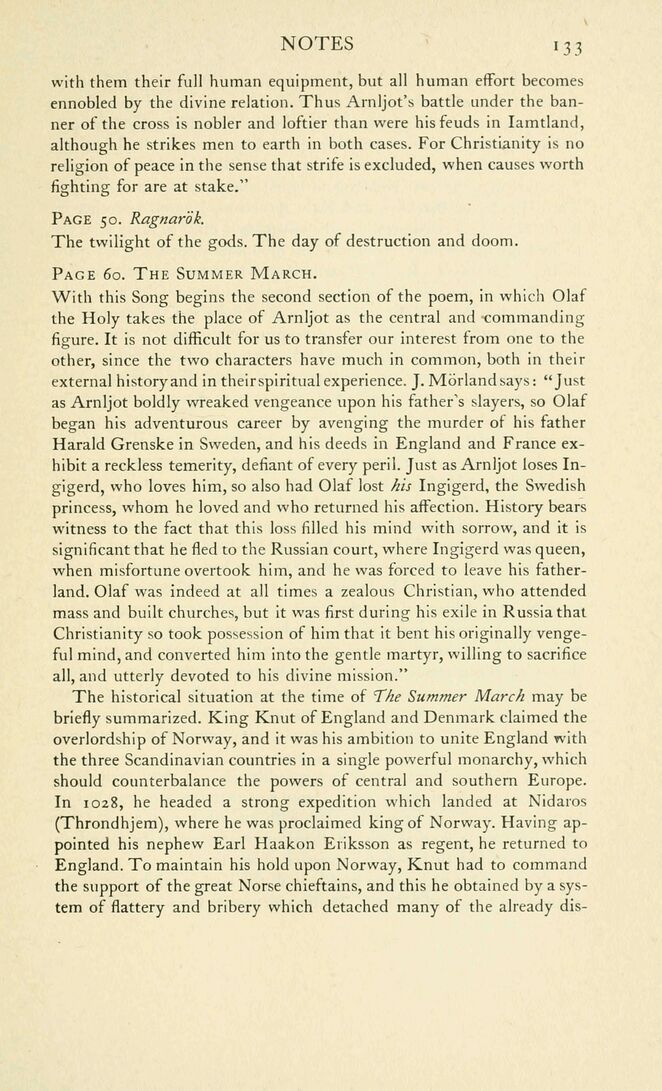
Full resolution (JPEG) - On this page / på denna sida - Sidor ...

<< prev. page << föreg. sida << >> nästa sida >> next page >>
Below is the raw OCR text
from the above scanned image.
Do you see an error? Proofread the page now!
Här nedan syns maskintolkade texten från faksimilbilden ovan.
Ser du något fel? Korrekturläs sidan nu!
This page has never been proofread. / Denna sida har aldrig korrekturlästs.
NOTES 133
with them their full human equipment, but all human effort becomes
ennobled by the divine relation. Thus Arnljot’s battle under the ban-
ner of the cross is nobler and loftier than were his feuds in Iamtland,
although he strikes men to earth in both cases. For Christianity is no
religion of peace in the sense that strife is excluded, when causes worth
fighting for are at stake.”
PaGE 50. Ragnarok,
The twilight of the gods. The day of destruction and doom.
PaGE 60. THE SUMMER Marcu.
With this Song begins the second section of the poem, in which Olaf
the Holy takes the place of Arnljot as the central and commanding
figure. It is not difficult for us to transfer our interest from one to the
other, since the two characters have much in common, both in their
external history and in theirspiritual experience. J. Morland says: “Just
as Arnljot boldly wreaked vengeance upon his father’s slayers, so Olaf
began his adventurous career by avenging the murder of his father
Harald Grenske in Sweden, and his deeds in England and France ex-
hibit a reckless temerity, defiant of every peril. Just as Arnljot loses In-
gigerd, who loves him, so also had Olaf lost Azs Ingigerd, the Swedish
princess, whom he loved and who returned his affection. History bears
witness to the fact that this loss filled his mind with sorrow, and it is
significant that he fled to the Russian court, where Ingigerd was queen,
when misfortune overtook him, and he was forced to leave his father-
land. Olaf was indeed at all times a zealous Christian, who attended
mass and built churches, but it was first during his exile in Russia that
Christianity so took possession of him that it bent his originally venge-
ful mind, and converted him into the gentle martyr, willing to sacrifice
all, and utterly devoted to his divine mission.”
The historical situation at the time of Te Summer March may be
briefly summarized. King Knut of England and Denmark claimed the
overlordship of Norway, and it was his ambition to unite England with
the three Scandinavian countries in a single powerful monarchy, which
should counterbalance the powers of central and southern Europe.
In 1028, he headed a strong expedition which landed at Nidaros
(Throndhjem), where he was proclaimed king of Norway. Having ap-
pointed his nephew Earl Haakon Eriksson as regent, he returned to
England. To maintain his hold upon Norway, Knut had to command
the support of the great Norse chieftains, and this he obtained by a sys-
tem of flattery and bribery which detached many of the already dis-
<< prev. page << föreg. sida << >> nästa sida >> next page >>